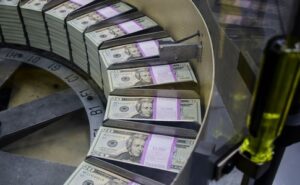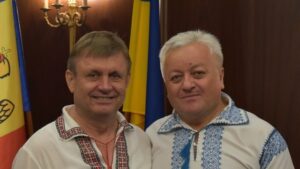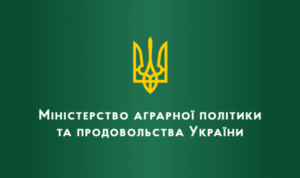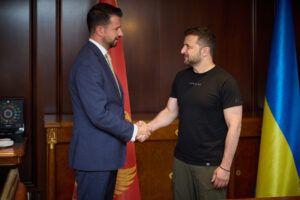
Demand for building materials slowed in 2024 after a significant increase last year due to low consumer solvency and insufficient funding for government recovery programs, the Association of Manufacturers of Building Materials noted.
“In general, in terms of estimated volumes, the first half of 2024 almost correlates with the figures for 2023, meaning that there was no miracle in the increase in demand. Sales of specific products today directly depend on the activity of small private developers. Large and truly solvent public or private consumers of wholesale volumes exist in single copies,” Konstantin Saliy, President of the All-Ukrainian Union of Building Materials Manufacturers, told Interfax-Ukraine.
According to him, individuals make up the bulk of real sales of building materials for which payment has been completed. At the same time, the programs “5-7-9”, “eHouse” and “eRecovery” stimulate unstable increases in demand, which allow keeping the sales of materials at the level of 27-50% of pre-war 2021, the expert noted.
“Under such conditions, the market climate is not expected to improve until the end of 2024,” added Saliy.
Meanwhile, the demand for aerated concrete is driven mainly by apartment construction, which is supported by recovery programs, said Oleg Syrotin, director of the All-Ukrainian Association of Autoclaved Aerated Concrete Producers.
“Today, the demand for aerated concrete has decreased by almost 60% compared to the pre-war period. The main consumer of our products, individuals, are hardly building any houses. The industry is surviving mainly due to multi-apartment construction, in particular through government programs for restoration and compensation to the affected people,” he said.
According to the expert, the growth in demand would be positively affected by the expansion of the eHouse state program to low-rise projects of small developers, as this sector was the main consumer of aerated concrete before the war.
“Aerated concrete is used in new construction, so the state program eHouse is the most effective for us. The second most effective program is eRestoration for severely damaged facilities where new walls need to be built. The impact of these programs is certainly positive, but we would like to see more financial resources from the state and banks for them,” explained Syrotin.
According to Ukrcement, cement consumption in January-June 2024 increased to 3 million tons, up 21.3% year-on-year. At the same time, the association’s forecast for the rest of the year is restrained.
“The biggest problem for cement producers is demand. Demand for products has fallen sharply, which means that revenues have also fallen, while costs, on the contrary, are rising. The forecast for cement consumption in 2024 is quite restrained. We had a significant jump in 2023. We produced 7.4 million tons of cement. This year we had a difficult summer in terms of electricity. Therefore, if we reach 8 million tons this year, it will be a very good result,” explained Lyudmyla Krypka, Executive Director of Ukrcement Association.
Demand is significantly affected by the situation at the frontline, as well as government support for the industry, the expert noted. According to her, the policy of subsidies and additional benefits from the state is important to ensure the stable development of the market.

Ukraine’s international reserves in August, according to preliminary estimates of the National Bank of Ukraine (NBU), increased by 13.7%, or by $5 billion 98.6 million – to $42 billion 330.5 million.
“Such dynamics is due to significant volumes of receipts from international partners, which exceeded the net sale of foreign currency by the National Bank and the country’s debt payments in foreign currency,” the central bank said in a statement on its website on Friday evening.
At the same time, the NBU’s net international reserves in August even slightly decreased – by $2 million – to $23.301 billion.
According to the Quantitative Performance Criterion (QPC) in the updated EFF Extended Funding Facility, Ukraine’s NIRRs should be at least $28.8 billion at the end of September this year and at least $26.3 billion at the end of the year.
According to the published information, the National Bank sold on the foreign exchange market $2.696 billion and bought back into reserves $0.3 million, the net sale of foreign currency by the NBU in August decreased from $3.05 billion to $2.696 billion.
It is noted that the government’s foreign currency accounts in the National Bank received $8.465 billion, of which $4.553 billion from the EU within the framework of the Ukraine Facility and $3.89 billion through the World Bank.
For servicing and repayment of the state debt in foreign currency, $724.1 million was paid, of which $266.0 million – servicing and repayment of debt to the World Bank; $239.9 million – payments related to the restructuring of Eurobonds, $130.1 million – payments on state derivatives and $88.1 million – payments to other international creditors.
In addition, Ukraine paid $392.4 million to the International Monetary Fund.
“In August, due to revaluation, the value of financial instruments increased by $443 million. The current volume of international reserves provides financing for 5.4 months of future imports,” the regulator stated in a release.

A reception organized by the Embassy of the Republic of Moldova on the occasion of the 33rd anniversary of the country’s independence was held in Kyiv at the Premier Palace Hotel. The event gathered diplomats, politicians, cultural figures and business representatives who had the opportunity to enjoy Moldovan hospitality, wines and national dishes.
The Ambassador of the Republic of Moldova to Ukraine, Mr. Valeriu Chiver, delivered a solemn speech in which he noted not only the achievements of Moldova since independence, but also expressed gratitude to Ukraine for the fruitful cooperation.
The main points of Valerii Chiverii’s speech:
“I am very pleased to welcome you to the reception on the occasion of the 33rd anniversary of the Republic of Moldova’s independence. We are grateful to you for joining us on this festive day. We have two important holidays: Independence Day, which we celebrate on August 27, and Romanian Language Day, which is celebrated on August 31. In addition, we recently celebrated National Army Day, which adds another reason to celebrate.
This year, the upcoming presidential elections on October 20 are particularly important, when Moldovans will have the opportunity to choose the European path of the country’s development. We are confident that Ukrainians want the same for their country, which will further strengthen our relations.
Our bilateral relations are now at their highest level ever. Over the past two years, Ukraine has hosted the President of Moldova three times, the Prime Minister twice, and numerous ministerial visits have taken place. Our cooperation covers various multilateral platforms, including the Peace Formula, the Crimean Platform, and other important initiatives.
Moldova has been supporting Ukraine since the very beginning of this unjust war. We have opened our borders to over a million Ukrainians and provided asylum to over a hundred thousand. We believe that the lines of solidarity along which Ukrainian grain is exported will one day become the lines along which goods will be returned to rebuild Ukraine.
Both of our countries are striving to become part of the European family, and we are convinced that this will bring us even closer. Moldovan-Ukrainian cooperation is based on mutual respect and understanding. We are also grateful to the Ukrainian authorities for restoring the historical truth regarding the Romanian language and congratulate all Romanian speakers on their holiday.”
At the end of his speech, Valeriu Chiever thanked his Ukrainian counterparts for their openness and cooperation, and noted the productive trilateral meetings between Moldova, Ukraine and Romania.
Referring to the efforts of Moldovan embassies, consulates and honorary consuls in various regions of Ukraine, he thanked them for promoting bilateral relations and organizing the event, especially emphasizing their work under the pressure of war.
Moldova recognized Ukraine’s independence on December 10, 1991, shortly after Ukraine gained independence. Diplomatic relations between the Republic of Moldova and Ukraine were established on March 10, 1992.

The Ministry of Agrarian Policy and Food and grain market participants in addenda to the memorandum of understanding fixed in 2024/2025 marketing year the limit for export volume of 16.2 million tons of wheat and a mixture of wheat and rye (meslin) according to the code UKT VED 1001, the press service of the Ministry of Agrarian Policy reported.
“The purpose of signing the memorandum and its annex is to ensure food security, predictable, anticipated, flexible and stable grain export regime and sustainable functioning of the grain market in Ukraine,” the press service quoted Acting Minister of Agrarian Policy and Food Taras Vysotsky as saying.
The parties also agreed on monthly monitoring of the volume of grain exports and, if necessary, adjustment of the limit export volume in January 2025.
As reported, the Ministry of Agrarian Policy and grain market participants in July 2024 signed a memorandum of understanding for 2024/25 MY. The parties agreed to cooperate on coordination of balance characteristics of the grain market of Ukraine to ensure food security, stabilization of the grain market, projected grain exports and receipt of foreign exchange earnings.

Ukraine and Montenegro have started consultations on the preparation of a bilateral security agreement, the press service of the Ukrainian head of state said.
“Ukraine and Montenegro held a meeting on the conclusion of a bilateral security agreement. The document will contribute to strengthening security in Europe and deepening cooperation between the two countries,” – said in a message on the President’s website on Friday.
It is noted that today’s consultations were held by the Deputy Head of the Office of the President Igor Zhovkva. “We appreciate Montenegro’s unwavering position and unwavering support for Ukraine since the beginning of the Russian invasion. We share common values and look forward to Montenegro’s assistance on Ukraine’s path to NATO membership. Ukraine and Montenegro also aspire to EU membership and undoubtedly already contribute to the security and prosperity of Europe,” Zhovkva said, quoted by the press service.
Ukraine concludes bilateral security agreements in pursuance of the G7 Joint Declaration adopted last year on July 12 in Vilnius. Twenty-five agreements have already been signed with the countries that supported it.

The Presidium of the League of Insurance Organizations of Ukraine (LIOU) has appointed Tetyana Mosiychuk to the position of vice-president, LIOU President Viktor Berlin said on his Facebook page.
“We have very ambitious goals, and for their realization we need professionals of the highest level. The tasks are many, the challenges are huge, it will not be easy, but I believe in our synergy!”, – emphasized Viktor Berlin.
According to him, Tetyana Mosiychuk will be responsible for the direction of interaction with the market regulator, as well as will tighten the activities already started by LSOU on consolidation of the insurance market of Ukraine.
“I thank you for your trust and I quite agree that it is very important now that the insurance market is united. There is still a lack of a monolithic voice of insurers. I believe it is necessary that insurance companies not only hear, but also take into account their position,” – said Tetyana Mosiychuk.
As reported, Tetyana Mosiychuk headed the Department of Supervision over the non-banking financial services market of the NBU from March 13, 2023 to May 3, 2024.
Tetyana Mosiychuk has worked in the financial sector of Ukraine for more than 30 years, in particular, she has significant experience in insurance, as well as in consulting and investment spheres.
Prior to her appointment to the National Bank, she worked as an advisor on strategic development of the insurance market to the Director General of the Insurance Business Association (2022-2023), was a member of the Management Board and Deputy Director of Persha Insurance Company (2021-2022). Prior to that, she worked in the Ukrainian Fire Insurance Company as Head of the Board (2019-2021), First Deputy Head of the Board (2018-2019).
She has significant experience in the civil service: she worked as Deputy Head of the State Commission for Regulation of the Financial Services Market of Ukraine and Head of the Financial Planning Department of the Ministry of Internal Affairs. She was an expert for EU projects in the field of financial market reforms.
Mosiychuk graduated with honors from Kharkiv State University (qualification: economist). In 2016, she received a PhD in Economics with a specialization in Economic Security of the State.